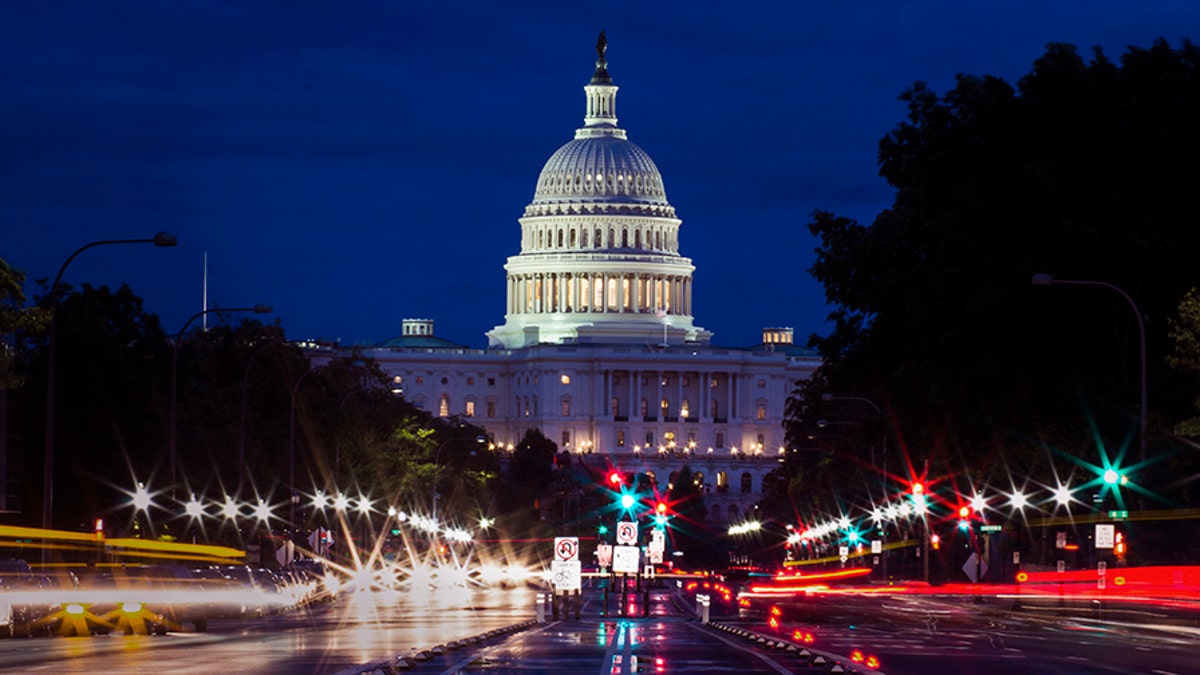
Capitol building with city foreground - Washington DC (iStock)
House and Senate negotiators announced Monday that they had reached agreement on a package of three spending bills worth $146.5 billion in all.
The so-called "minibus" includes bills that fund the Energy Department, the Department of Veterans Affairs and the legislative branch of government. Sources tell Fox News the Senate will likely move first to vote on the measure, followed by the House. The goal is to send the measure to the White House for President Trump's signature by the end of this week.
House Speaker Paul Ryan, R-Wis., and Senate Minority Leader Chuck Schumer, D-N.Y., praised the legislation, which Ryan said "represents the revitalization of our appropriations process.
"Funding the government is one of Congress’s most basic responsibilities, and this conference report is a strong first act," Ryan said.
"By working across the aisle with our Republican colleagues, Democrats were able to deliver critical investments for the American people, including in our veterans, scientific research, key energy and water infrastructure, and much more," Schumer said.
Congress has until Oct. 1 to avoid a government shutdown, which would be the third under unified Republican control of government. Trump has threatened to force a shutdown in order to secure funding for a wall along the U.S.-Mexico border.
In March, after the previous government shutdown, Trump vowed that he would veto any future so-called "omnibus" bill that came to his desk. "Omnibus" describes an amalgamation of legislation needed to fund the government.
The compromise bill announced Monday is the first of three potential "minibuses" that would fund a large portion of the government, including the military and most civilian agencies. The second "minibus" would provide funding for the departments of Defense, Labor and Health and Human Services. A third "minibus" would fund the Interior Department and other agencies.
The Senate already has approved nine of the 12 spending bills, enough to fund nearly 90 percent of the government. However, the House has approved only three, and neither chamber has agreed on the details of any other unified bills.
That means both the House and Senate could be forced to approve a stopgap continuing resolution to avoid a shutdown. The stopgap measure would fund all spending areas not covered by the "minibuses."
Fox News' Chad Pergram and The Associated Press contributed to this report.





